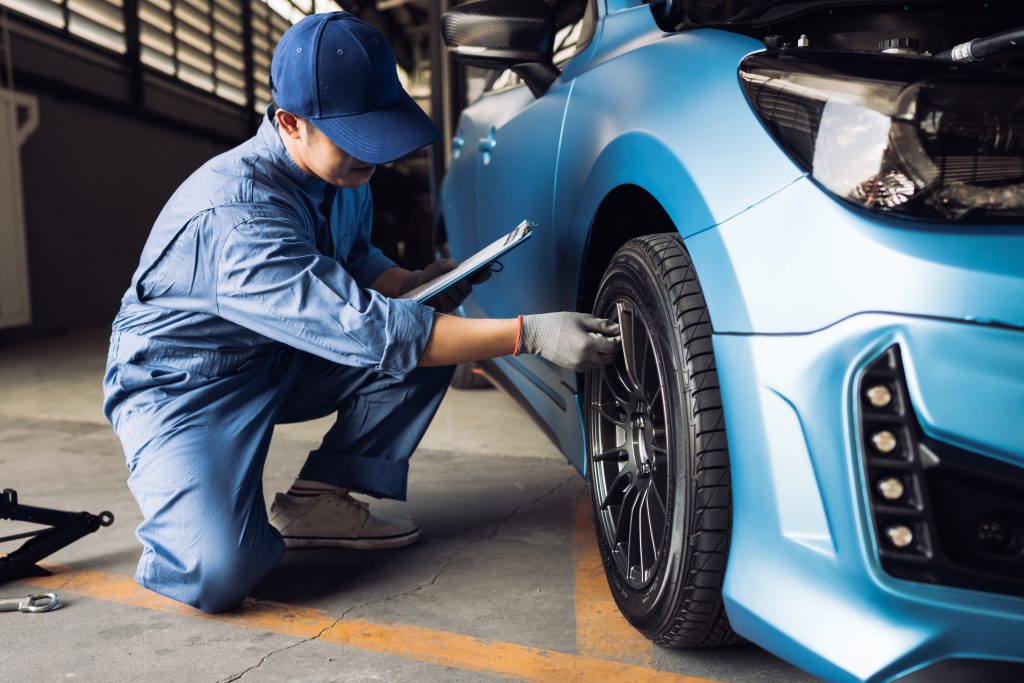
For those new to owning a car, or just a little out of the loop when it comes to maintenance and car servicing, there’s a good chance you’re not too sure about how often you should see your local mechanics for a service.
It can be hard to tell whether to head down to the auto shop when there’s nothing wrong with our cars, or to wait until we’re seeing lights on the dashboard. However, prevention is always the best way to go.
That in mind, we have a few little tips and clues as to how often you should service your car, and how to know if your car needs a little extra help.
The Typical Vehicle Servicing Guideline
As you might already know, most vehicles do have a servicing requirement that outlines the time or the distance driven and lets you know when to get your next service.
In most cases, you’ll find that this distance is around 10,000km or every six months on average. When we follow these guidelines and head down to the professionals for a service, we’re getting the assurance that we are going to catch any issues with our car’s as early as possible.
However, some makes and models have different service requirements.
For those with higher end vehicles, electric cars or vehicles that rely more heavily on electronic components, for example, you may need to head down to your local mechanic a little more often.
This is down to the fact that some of these vehicles have proprietary technologies as well as newer types of components that need to be kept watch of as your car ages.
In all, it’s good to have someone look over your car every six months – minimum.
Component-based Servicing
On top of the typical whole-car service every six months, it’s good to keep in mind that there are routine servicing guidelines for each component in your vehicle.
For example, your car’s A/C filter will need to be replaced every two years, or 40,000km, as will your air filters, brake fluid and brake pads too.
A little less frequently replaced are your batteries and fuel filters which need a replacement every 60,000km or 80,000km depending on the model of vehicle you own, though between three and four years is average.
To the clutch and the timing belts, these can be replaced every 80,000km to 120,000km which means every four to six years for these components.
In all, your car’s individual parts all have different lifespans and requirements, and that in mind, it’s good to see a professional for these too, like one you can find through Enji. Don’t rely on replacing these yourself in their allotted lifespans as they might be ageing a little faster than expected.
Noticing Common Issues
Before we wrap up our article, you’ll want to be on the lookout for common issues with your car that might let you know when to book it in for a service.
A few of these issues include things such as;
Increased Fuel Burn — which can come as a result of needing an oil change to increase vehicle efficiency. With poor oil quality or infrequently changed motor oil, your vehicle won’t be operating at peak efficiency and you’ll slowly see the car burning more and more fuel and running a little hotter.
Poor Brake Responsiveness — which can come from brake fluid running low or your vehicle having air bubbles in the brake lines. That in mind, you’ll want to book into a service for this issue too as your local mechanic will be able to take care of the air buildup in the brake lines and have your car’s brakes back to being nice and responsive.
Electrics Not Working — if you’re spotting that certain electronics in the car have stopped working, then there’s a good chance you might have blown a fuse. These are typically telltale signs of your vehicle’s age, or a battery issue. This is again a good sign your car needs a service and for your mechanic to take a look at the electrics and to spot if there are any major issues here.
The Takeaway
All of the above in mind, it’s good to note that there is a routine and typical car service schedule that you can stick to which ensures you’ll be in the all clear when it comes to safety and preventing future issues.
If you’re unsure of when to service, take a look at your vehicle’s manual and also keep an eye on the above issues to know when to book in for a service.
